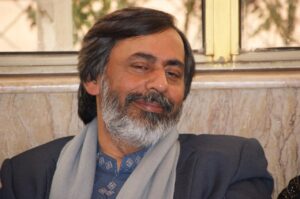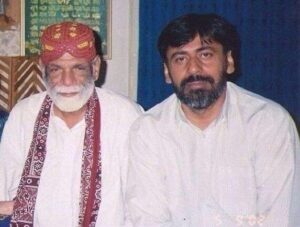Low self confidence remedy
Introduction
Low self-confidence can cast a shadow over our lives, affecting our relationships, career, and overall well-being. In this article, we will delve into the realm of self-confidence—understanding its essence, exploring potential causes of low self-esteem, discussing management strategies, and introducing an unconventional solution known as the “Ultimate Remedy.” This unique audio therapy claims to have the power to dispel low self-confidence by harnessing the healing potential of sound and intention.
Understanding Self-Confidence
The Core of Self-Confidence
Self-confidence is the belief in one’s abilities, worth, and capacity to achieve goals. It’s the driving force that propels us toward success and fulfillment. However, it can waver and fluctuate over time.
Understanding Causes of Low Self-Confidence
Low self-confidence can be attributed to various factors:
Negative Self-Perception: How we perceive ourselves can significantly influence our self-confidence.
Past Failures: Repeated setbacks and failures can erode self-belief.
Criticism and Rejection: Harsh criticism or rejection can dent self-confidence.
Comparison: Constantly comparing ourselves to others can lead to self-doubt.
Fear of Failure: The fear of failing can paralyze self-confidence.
Management Strategies for Boosting Self-Confidence
Rebuilding self-confidence requires effort, but it’s a journey worth embarking on:
Positive Self-Talk: Challenge negative thoughts and replace them with positive affirmations.
Set Achievable Goals: Break down big goals into smaller, attainable steps.
Face Your Fears: Gradually confront your fears and step out of your comfort zone.
Learn from Failure: View failures as opportunities for growth.
Seek Support: Talk to friends, family, or a therapist for emotional support.
The “Ultimate Remedy” An Alternative Approach
The “Ultimate Remedy” introduces an unconventional solution for low self-confidence. This unique audio therapy claims to have the power to eliminate low self-confidence by harnessing the healing potential of sound and intention.
How to Use the “Ultimate Remedy” for Boosting Self-Confidence
If you decide to explore the “Ultimate Remedy” as a potential remedy for low self-confidence, follow these steps:
Download the Audio: Visit the designated website and download the “Ultimate Remedy” audio from the provided links.
Follow Instructions: Pay close attention to the instructions on how to use the audio. Detailed usage specifics are not covered in this article, so it’s essential to understand the recommended process fully.
Contact for Help: For any questions or assistance, you are encouraged to reach out to “help@mastmasthealers.com.”
Happy Patients
Years since day one
%
Satisfaction
Testimonial
How to Listen to the Ultimate Remedy:
Download the Ultimate Remedy audio from our website or app. It’s free and accessible to all.
- Choose a quiet, comfortable space where you won’t be disturbed.
- Close your eyes and visualize yourself in the presence of your higher power or the essence of the universe.
- Listen to the audio with great concentration and closed eyes.
- After the audio is finished, open your eyes and take half a glass of water.
- Close your eyes again and say “your name” or a word that represents your belief (such as “God”, “Universe”, or “Love”) three times in your heart.
- Drink the water with closed eyes in three sips.
- For optimal results, it’s recommended to listen to the Ultimate Remedy three times a day (morning, evening, and before sleeping) for seven consecutive days.
About the Creator – Syed Safdar Hussain Bukhari
Introduction and Early Life
Syed Safdar Hussain Bukhari, also known as Kakian Wali Sarkar, was a unique example of kindness, devotion, and tenacity. Born on May 6th, 1940, he dedicated his life to serving humanity and providing relief to those suffering from various ailments.

Social Work and Spiritual Journey
Between 1960-1980, he engaged in social work by undertaking road repairs, establishing schools, and arranging medical supplies in Lilla Town. In 1990, he left his ancestral home and family wealth to move to Lahore, where he comforted the depressed and saddened through mystic dance and music.
The Ultimate Remedy
In 1998, Baba Bukhari’s research led to the discovery of “The Ultimate Remedy,” a blessed audio that he believed could cure physical, psychological, spiritual, and supernatural problems. The remedy involved listening to the audio three times a day for seven consecutive days, followed by a specific water ritual. This method claimed to cure various ailments, including coronavirus, AIDS, cancer, drug addiction, worldly problems, and psychological issues.
Legacy and Death
Baba Bukhari’s research and unconditional love left a lasting impact on humanity, providing positive thinking, peace of mind, health, fearless life, and an example of love and compassion. He passed away on February 8th, 2005, leaving behind a legacy of healing through “The Ultimate Remedy.”

His spiritual successor is Syed Baba Jaan
According to Baba Bukhari (RA), his spiritual successor is Mr. Shakir Uzair, also known as Syed Baba Jaan . As the chosen heir to Baba Bukhari’s spiritual legacy, Syed Baba Jaan carries forward the teachings and practices that have been passed down through generations. Dedicated to serving humanity and promoting healing, Mr. Shakir Uzair continues to spread the message of love, compassion, and the transformative power of the Ultimate Remedy to help countless individuals in their journey towards holistic wellness and personal growth.

